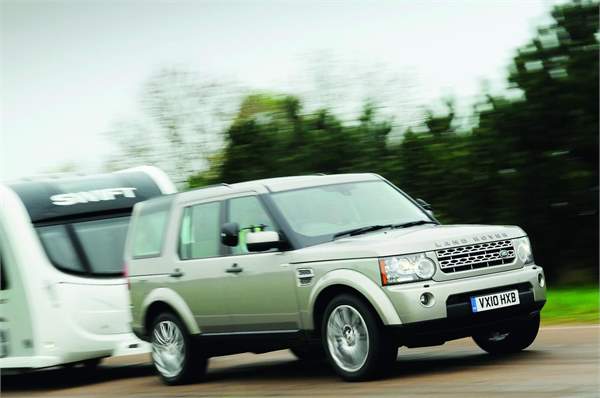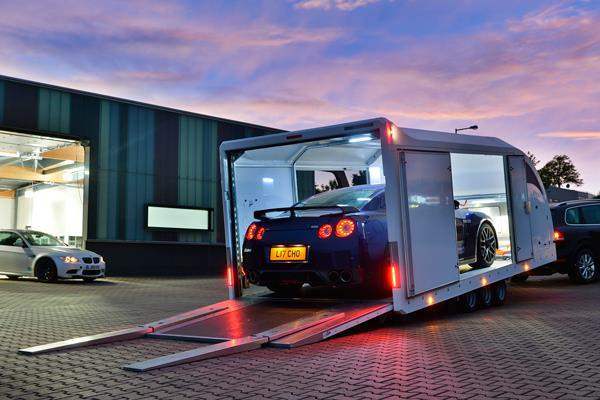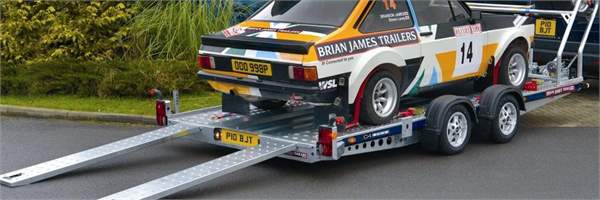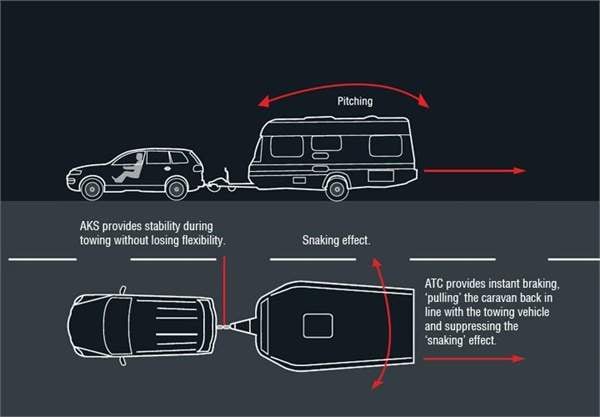If you’re going to be putting that tow hitch to use, then the first thing to sort out is your weight. No, step away from the gym and put that celery down – I mean the weight of your car and its trailer. It’s a legal requirement you see. Most of us will be carrying a Category B driver's licence. That means you are allowed to drive a car pulling a trailer or caravan with a maximum weight of 750kg (assuming the trailer has its own brakes). If you want to pull something heavier than that, up to 3,500kg maximum allowable mass (MAM), then you need to upgrade to a category BE licence which means taking another test.

So, break out your spec sheets and your calculator and don’t forget that you need to allow for the weights of passengers too. This may cause some indelicate questioning. Possibly the odd divorce. You can find all of the technical information about your car in the owner's manual, or if you can’t find that you can usually download a brochure online that will tell you the maximum 'unbraked' and braked trailer weights for that model. Generally, for a passenger car, you’re looking at an unbraked weight of about 750kg and a braked weight of circa 2,000kg. A big 4x4 or SUV will be able to pull heavier weights than that, but again, you’ve got to remember the MAM.

Next, you need to get your hitch sorted out. If your car was registered since January 1998, then its tow hitch must conform to European Directive 94/20/EC. It’ll be stamped on the hitch if it does, but as long as the hitch is either an original manufacturer's fitting or has been added on by a reputable firm then you should be fine.

You also need to be aware of the size of your trailer – generally, the maximum allowable width of anything you’re towing is going to be about 2.55 metres and you need to keep that figure in mind when negotiating lane width restrictions at motorway roadworks etc.
Don’t forget your extra-width door mirrors, especially for caravans, and if your trailer has plumbed-in brake lights and indicators (which it is supposed to have)

then there must be a repeater or buzzer in the car’s cabin that shows you that they’re working properly.
You also need to remember your speed limits – if you’re towing then your speed limit is effectively lower on both single and dual carriageways. On a motorway, you’re going to be restricted to 80km/h, while on all other roads it’s between 60- and 80km/h.
What else to remember? Number plates for the caravan or trailer (which must be properly lit at night), and you’re seriously not allowed to carry passengers in a caravan that you’re towing.

You also need to be aware of parking – you’re not allowed to let your trailer or caravan impede a second parking space, so only park in designated areas, please.
And then there’s the ‘snake’ or as it's known in Motorsport circles - the 'tank slapper'. The dreaded terror of any trailer-or-caravan puller, when the movements of the trailer start to get out of sync with the movements of the car (basically a huge speed wobble). It can be caused by a number of things, excessive speed, from side winds to overly-sharp steering inputs, but the best way out of it is to slow down.

Your instincts will tell you to jump on the brakes but that's the last thing you want to do, as that will further destabilise things, but instead just take your feet off the pedals, steer dead straight and let the car’s engine braking slow everything down until stability returns. Some newer cars have a specific trailer assistance setting built into their electronic stability control, which can be a huge help in situations like this, but it’s better to have the technique right yourself rather than relying on the electronics.
Finally, you need to practice reversing with either a caravan or trailer. The best thing to do, if you’re a novice, is to find a big,

empty car park and set out some cones for yourself to practice with. Maybe tape some foam rubber to the corners of the trailer and the back of your car, to avoid any practice scrapes. It is counter-intuitive, because you basically have to steer the ‘wrong’ way, right up until the time that you need to actually steer the ‘right’ way. There’s no substitute for practice here but if you need expert advice, your local caravan club will almost certainly have regular courses where experienced towers can help you learn the easy way.
Happy towing!